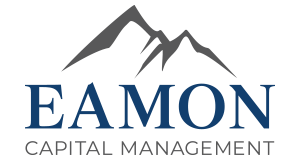
What Have We Learned from Past Recessions?
June 3, 2023
Commentary – Second Quarter 2023
August 17, 2023INSIGHTS

Expert Series: To Remodel or Relocate?
In today’s environment of rising interest rates and a low inventory housing market, many home-owners are contemplating remodeling over relocating. How do you make decisions that work best for your budget, your family, and your financial goals?
According to Today’s Homeowner’s ROI of Your Home Remodel report, remodeling projects boost your return on investment (ROI) by 69% on average.
Sayward Lehman, with Piatt Sotheby's International Realty, often works with clients to help make decisions about remodel versus relocating. "Some homeowners' aspirations can outstrip both their budget and what their house can resell for in the foreseeable future. One serious question that people need to consider is 'am I overbuilding my neighborhood?'"
The pandemic has given many homeowners a renewed sense of interest in their home value and look. According to the Joint Center for Housing Centers of Harvard University (JCHS), home improvement project spending increased from $328 billion in 2019 to $472 billion in 2022, with an estimated 2023 spending of $485 billion. JCHS also reports that the market grew by 23.8% in 2020 and 2021, exceeding the estimated 12.5% for the same time frame. Americans spent $363 billion on home improvements, renovations, and repairs in 2020 and $406 billion the following year. This was an 11.8% increase from 2020 and nearly three times the average annual growth of 4.4%. By 2022, homeowners’ spending rose to $472 billion.
Here are some tips on how to work with your financial advisor and real estate advisor to make the best decisions about a home remodel:
- Determine your goals.
What do you hope to achieve with your remodel? Do you want to increase the value of your home? Make it more energy-efficient? Improve the functionality of your space? Once you know what you want to achieve, you can start to develop a plan. For instance, according to the NAR Remodeling report, homeowners recoup over 100% of their investment from hardwood finish refinish (147%) and new wood flooring (118%). Insulation upgrades also provide 100% ROI plus long-term energy savings. Other home improvements projects, such as basement conversions and closet renovations, offer ROIs of 86% and 83%, respectively. - Get varying estimates.
Once you have a plan, it's time to get estimates from contractors. Be sure to get estimates from at least three different contractors so you can compare prices and services. If you plan to do the work yourself, be realistic. Are you prepared to live in your home while your kitchen is under construction? The National Association of Realtors (NAR) reports that while professional home improvement projects dropped, do-it-yourself renovations soared. - Plan for financing.
If you don't have the money to pay for your remodel upfront, you may need to finance it. There are a number of different financing options available, so be sure to compare rates and terms before you choose one. With the rising interest rate environment, shopping around for financing can save you hundreds or thousands. A local window company in Pittsburgh PA, for instance, offers 24 months interest free financing, whereas according to bankrate.com, the average HELOC interest rate is 8.65% as of August 2023. - Meet with your financial advisor.
Your financial advisor can help you make sure that you can afford your remodel and that it fits into your overall financial plan. They can also help you choose the right financing option and make sure that you're getting the best possible deal. - Ask your real estate advisor.
Your real estate advisor can help you assess the impact of your remodel on the value of your home and neighborhood. They can also help you market your home if you decide to sell it after the remodel. A recent Architectural Digest article reports that a new roof replacement should be expected to get a 100% ROI, whereas replacing a front door might only gain a 60% ROI. Assessing your neighborhood and the homes around you will also help in this decision.
By working with your professional team of financial advisor and real estate advisor, you can ensure your overall plan and home remodel is a success both financially and mentally.
Houzz found that new home buyers invested up to $30,000 in renovations—double the current national median. Short-term homeowners—meaning anyone who moved into their home one to five years ago—spent $19,000 on average. Spending trends were much lower for long-term homeowners or residents who entered their homes six or more years ago. Their median spending fell in line with the $15,000 national average.
"Knowing the overall price tag of the remodel, including financial costs and the almost guaranteed cost overruns associated with any building project can help make decisions about how the project may impact your long term financial plan," said Amy LoCascio, managing director at Eamon Capital Management.
Here are some additional tips:
- Be realistic about your budget. It's easy to get carried away with a remodel, but it's important to set a budget and stick to it.
- Don't forget the hidden costs. There are a number of hidden costs associated with a remodel, such as permits, inspections, and materials. Be sure to factor these costs into your budget.
- Get everything in writing. Before you sign any contracts, be sure to get everything in writing. This includes the scope of work, the timeline, the cost, and any warranties.
- Do your research. Before you hire a contractor, be sure to do your research. Get a few quotes, gather references and check their licenses and insurance.
- Be prepared for change. Things don't always go according to plan during a remodel. Anticipate delays, unexpected costs, and changes to the scope of work.
Following these tips, you can increase your chances of having a successful home remodel and confidence in your next project!

If you have questions about how “recession-proof” your investments are feel free to reach out with questions or to have a conversation.
Eamon Capital Management, LLC (“Eamon”) is a registered investment advisor offering advisory services in the State of Pennsylvania and in other jurisdictions where exempted. Registration does not imply a certain level of skill or training.
This communication is for informational purposes only and is not intended as tax, accounting or legal advice, as an offer or solicitation of an offer to buy or sell, or as an endorsement of any company, security, fund, or other securities or non-securities offering. This communication should not be relied upon as the sole factor in an investment making decision.
Past performance is no indication of future results. Investment in securities involves significant risk and has the potential for partial or complete loss of funds invested. It should not be assumed that any recommendations made will be profitable or equal the performance noted in this publication.
The information herein is provided “AS IS” and without warranties of any kind either express or implied. To the fullest extent permissible pursuant to applicable laws, Eamon Capital Management, LLC (referred to as “Eamon”) disclaims all warranties, express or implied, including, but not limited to, implied warranties of merchantability, non-infringement, and suitability for a particular purpose.
All opinions and estimates constitute Eamon’s judgement as of the date of this communication and are subject to change without notice. Eamon does not warrant that the information will be free from error. The information should not be relied upon for purposes of transacting securities or other investments. Your use of the information is at your sole risk. Under no circumstances shall Eamon be liable for any direct, indirect, special or consequential damages that result from the use of, or the inability to use, the information provided herein, even if Eamon or a Eamon authorized representative has been advised of the possibility of such damages. Information contained herein should not be considered a solicitation to buy, an offer to sell, or a recommendation of any security in any jurisdiction where such offer, solicitation, or recommendation would be unlawful or unauthorized.
